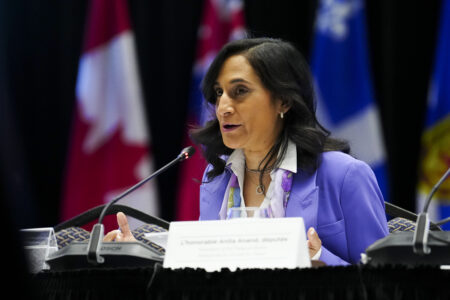
(Version française disponible ici)
The federal budget presented in mid-April was eagerly awaited by people with disabilities and the organizations that represent them across the country. Indeed, following the June 2023 passage of Bill C-22 creating the Canada Disability Benefit (CDB), pressure was high for the federal government to quickly implement this important measure. The CDB was the first significant step towards implementing the rights guaranteed by the United Nation’s Convention on the Rights of Persons with Disabilities, which Canada signed in 2007, in addition to the adoption of the Accessible Canada Act in 2019.
The urgency for the federal government to act on this issue stems in part from the fact that people with disabilities in Canada were experiencing much higher rates of poverty, and lower-than-average rates of employment, long before the current inflationary context. Combined, these factors mean that many people with disabilities rely on provincial and territorial social assistance programs, which are often seen as “poverty traps.”
Expectations were therefore very high regarding the creation of this new federal benefit, designed to complement provincial and territorial programs and combat poverty among working-age people with disabilities. The effort has fallen short.
What could the potential cost to the public treasury be?
To provide food for thought and support the government in its decision-making, the Parliamentary Budget Officer (PBO) published three scenarios in November 2023 to give an idea of the scale of the spending required to meet the needs of disabled people living in poverty. The PBO estimated that the cost to raise 276,000 to 1,371,000 people out of poverty would be between $2.1 billion and $20 billion per year.
For their part, some groups representing people with disabilities felt that a federal benefit of at least $2,200 a month ($26,400 a year) was needed to get disabled people out of poverty. These organizations also felt that the CDB should be set individually, with the amount based on the recipient’s income rather than that of the household, while offering flexible eligibility.
In addition to using the Disability Tax Credit (DTC), the gateway to the majority of federal disability programs, many organizations had suggested that people benefiting from provincial or territorial disability-specific financial assistance plans should automatically qualify. This idea was intended to avoid potentially eligible people from having to fill out a new series of forms, relying instead on the exchange of information between governments.
Disappointing budget measures
Far from meeting the expectations of disability organizations – along with any of the scenarios presented by the PBO – the federal government has instead created a CDB with a maximum annual support level of $2,400 per person.
And despite widespread warnings about accessing the CDB through DTC eligibility alone, the Trudeau government has retained this tax measure as the only way to qualify for the benefit.
Yet it is common knowledge that it’s difficult to qualify for the DTC (both the Senate and the Canada Revenue Agency’s disability advisory committee have proposed changes in this area), and that francophones are less likely to benefit from it than anglophones.
These decisions caused a stir among people with disabilities and their organizations who, without expecting miracles, were hoping to see concrete action to respect the spirit of the law and, ultimately, to have a chance of getting hundreds of thousands of disabled people out of poverty.
Their disappointment is all the greater given that the CDB as presented in the federal budget does not meet the obligations set out in the legislation, including consideration of the market basket measure to determine the amount of the benefit, as well as the additional costs associated with disability, the difficulty of accessing the job market for these people, or Canada’s obligations under the convention.
Far from having lived up to expectations, the federal government seems instead to have remobilized disabled people and their organizations, as well as opposition parties, around the issue of poverty among this population.
What can the federal government do?
The pressure was on the NDP to bring down the government over the missed opportunity represented by CDB, but it didn’t. This isn’t all that surprising, since the party made significant gains on other issues, including dental coverage and Pharmacare.
Nonetheless, CDB could become a political issue in the next election campaign. While the housing crisis, inflation and the carbon tax are likely to monopolize much of the media and political attention, the mobilization and lobbying of people with disabilities and their organizations could make opposition parties take notice.
In the near future, the federal government will have to negotiate with the provinces and territories to ensure that the various programs are properly coordinated. This promises to be difficult.
Although Quebec disability organizations are opposed to any request for withdrawal with compensation from the provincial government, deeming provincial programs too complicated and punitive, recent history suggests that the CAQ will make such a request regardless.
Whichever scenario is chosen, governments will have to negotiate to ensure that the objective of the law – to lift people with disabilities out of poverty – is achieved, and that they do not bear the brunt of intergovernmental disputes.
For their part, disability groups have already announced that they will be mounting pressure throughout the summer for the government to announce enhanced measures in its economic statement in the fall of 2024. The latest federal budget is far from the end of the debate on the Canadian Disability Benefit.







